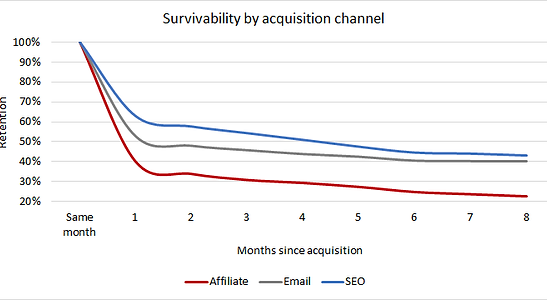

Below are HBS Industry Notes, and short summaries of my current courses
HBS Industry Notes and Cases
Elie Ofek, Barak Libai and Eitan Muller (2025), "To Acquire or Retain? That Should (Not) Be the Question!" Harvard Business School Industry Note (9-526-0).
Elie Ofek, Michael Haenlein, Eitan Muller and Roman Welden (2025), "Ecosystem Disruption: A Multi-Stakeholder View of Disruptive Innovations," Harvard Business School Industry Note (9-526-002).
Elie Ofek, Barak Libai and Eitan Muller (2025), "Customer Acquisition and the Cash Flow Trap," Harvard Business School Industry Note (9-525-056).
Elie Ofek, Barak Libai and Eitan Muller (2024), "Net Revenue Retention: Unpacking the Dynamics of Customer Monetization," Harvard Business School Industry Note (9-524-092).
Elie Ofek, Barak Libai and Eitan Muller (2022), "On CUE: The Quest for Optimal Customer Unit Economics," Harvard Business School Industry Note (9-523-050).
Elie Ofek, Barak Libai and Eitan Muller (2021), "Customer Lifetime Social Value (CLSV)," Harvard Business School Industry Note (9-518-077), Teaching Note (5-521-081), and PowerPoint Supplement (5-217-16). Bestseller, Harvard Business Publishing, 2021-2026.
On cohort analysis: The figure shows the retention
of customers acquired by a digital game from
three different channels: affiliate marketing
(via a paid link from another website),
e-mail, and search engine optimization
(or SEO, which refers to customers arriving
from organic search links). The graph
depicts the percent of customers from
each acquisition channel that are still active
on the app over time, monthly, as a percent
of the initial set of customers: in less than a year
after joining only 20% of the affiliate cohort is
still active, while about 40% of the email
and SEO cohorts are active.
Elie Ofek, Barak Libai and Eitan Muller (2020), "Customer Management Dynamics and Cohort Analysis," Harvard Business School Industry Note (9-520-122). Bestseller, Harvard Business Publishing, 2023-2026.
Elie Ofek, Eitan Muller and Barak Libai (2019), "Ride-Hailing Services: Forecasting Growth," Harvard Business School Case (9-519-097), Teaching Note (5-520-123), and PowerPoint Supplement (5-520-714).
New Products and New Tech: An MBA elective
We address the growth and customer equity of new products, technologies and markets, with special attention given to the entertainment, media, and technology sectors. We explore questions such as whether Uber could have been as successful without breaking the law, and the dynamics of profitability and growth in the video streaming industry and mobile game industry. We compute the customer equity of firms such as SiriusXM Satellite Radio and discuss the reasons leading Hyundai Motors to abandon the development of its own car entertainment system in favor of adopting software solutions from Apple and Google.
We examine the notion of disruptive innovations such as video and music streaming, and ride-hailing services, and ask the question: To whom exactly are they disruptive? We demonstrate the power of social interactions in social networks, and why these interactions are responsible for the fact that growth of new products is a slow process, even for successful products such as earbuds.
In every session, we look at new tech such as smart homes, wearable devices, cloud kitchens, NFTs, and XaaS (everything as a service) and discuss the obstacle to adoption of these innovations, who might be the early users, what is the degree of disruption, and what are the environmental footprint of these technologies?
Quant Methods PhD seminar
This is a first year quantitative course aimed at both quant and behavioral students. The purpose of this doctoral seminar is to acquaint students with the key issues, basic research techniques, and key findings in quantitative models in marketing. Topics covered includes both empirical models and analytical models in marketing. For students who are interested in quantitative methods in marketing, this seminar will prepare them to come up with research ideas that will eventually lead to publishable papers and will supply the skills and tools to implement ideas. For students who are interested in other areas, this seminar will provide a broad survey and the basic understandings of the main research areas associated with quantitative methods in marketing. We debate about choosing a research topic and what quant publications are about. In terms of topics we discuss network externalities and seeding, social contagion, and monetization of mobile apps. while in terms of methods we discuss quasi-experiments; hazard/survival models; VAR modeling; and agent-based modeling.